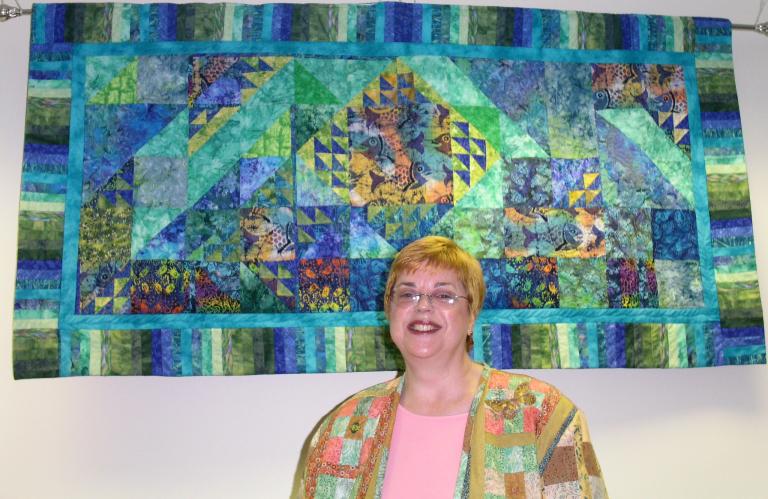
Engineers can't write. This is the common view Kettering students entertain as they walk into required communication courses at the University. When asked to assess their skill at writing and public speaking, many students generally describe their capabilities as average, with some indicating above average skill and an equal amount lamenting that they can barely craft a single, readable sentence.
Yet communication of technical ideas and concepts such as those found in the engineering field is perhaps one of the most important skills graduates must develop as they progress through their careers. Without the ability to comprehend technical information and effectively convey it to audiences of varying levels of education and experience, engineers may find it difficult to move upward in the corporate structure. H.T. Roman, author of "Be a Leader-Mentor Young Engineers," which appeared in the November 2002 issue of the Institute of Electrical and Electronics Engineers' publication Today's Engineer, states that poor communication skills represent "the Achilles' heel of many engineers, both young and experienced-and it can even be a career showstopper. In fact, poor communication skills have probably claimed more casualties than corporate downsizing."
But at Kettering, faculty who teach Communication courses may realize that they have an opportunity to negate the stereotype that engineers can't write. One faculty member who works to break down this perception is Elizabeth Campbell. Over the past year she worked with Karen Wilkinson, head of the Liberal Studies Dept., Corine Coniglio and Luchen Li, both assistant professors of Liberal Studies, to create the Virginia Kettering Professional Communication Studio, a facility that helps Kettering students develop their communication skills.
Designed for use by all written and oral communication courses during class time, the Virginia W. Kettering Professional Communication Studio includes 21 networked computers running the latest Microsoft XP software package. Additional resources include a computer projection unit, a computer station for instructors, tables, chairs and carpeting. This resource allows communication professors to assist students working on individual assignments, group projects and aid in the development of formal presentations using Power Point. The studio, located at 4-501 of the Academic Building, accommodates 20 students, which represents the upper limit for the class size for teaching writing and communication effectively. All computers have Internet capability and the room has an LCD projector and screen, as well as a laser printer.
Campbell won the Tutt Award based on her years of experience and hard work preparing documentation to support the incorporation of this resource into the communication curriculum. In fact, she has graciously loaned Kettering beautiful samples of her quilts, which hang in the studio to complement the decor. But the road that eventually led to this new studio took some time to negotiate.
In 1996 when Campbell began her Kettering career, she assumed that like her previous teaching assignments, she would have access to a computer lab on campus. This was a fair assumption to make, because, as she described it, "I saw computer labs all over campus. Much to my surprise, however, there was not one configured to teach modern communication classes efficiently. Kettering students require web access for reference and research, presentation software to prepare polished oral presentations, and a professional environment to work in."
She discussed the idea of a communication lab with the individual who headed the department at that time and prepared a request for the lab. Then Campbell and a few Kettering colleagues who helped her draft that initial proposal arranged a visit for the provost and several academic department heads to visit a communication lab at the University of Michigan-Flint. All of them agreed it was an outstanding facility, but the decision was made to wait and see about future support and funding for a similar facility at Kettering. In 1997 and 1998, Campbell revised her initial proposal and won funding to purchase a portable projector and help with renovations of the existing communication lab.
But the final step for establishing the current lab came from Corine Coniglio and Luchen Li, assistant professors of Liberal Studies, who, with the support of Department Head Karen Wilkinson, built on Campbell's previous proposals and met with Kettering staff responsible for computer labs and campus facilities. With a generous grant from the Kettering Family Foundation, the department was able to create the Virginia Kettering Professional Communication Studio, which opened in July of 2003.
Winning the Tutt Award based on her work in helping the Liberal Studies Dept. obtain the studio is an honor that Campbell feels "recognized my persistence and determination to help create the best possible working environment for my colleagues and students."
Campbell has belonged to several professional organizations during her career, including the National Council of Teachers of English (NCTE), and is a member of the Greater Flint Arts Council and The Flint Institute of Arts. Current research efforts include an upcoming presentation on writing manuals with faculty members Denise Stodola and Lindal Buchanan, authors of the new Liberal Studies writing manual, and work on a textbook manuscript with a former co-author.
Written by Gary Erwin
(810) 762-9538
gerwin@kettering.edu